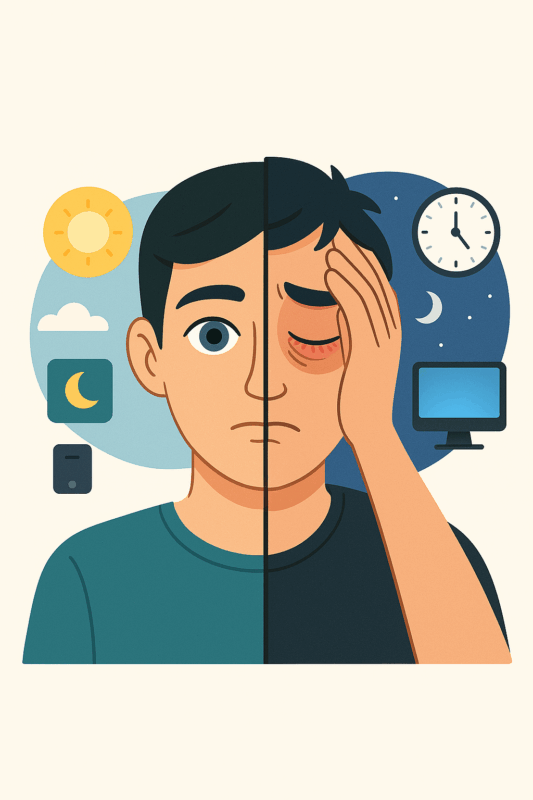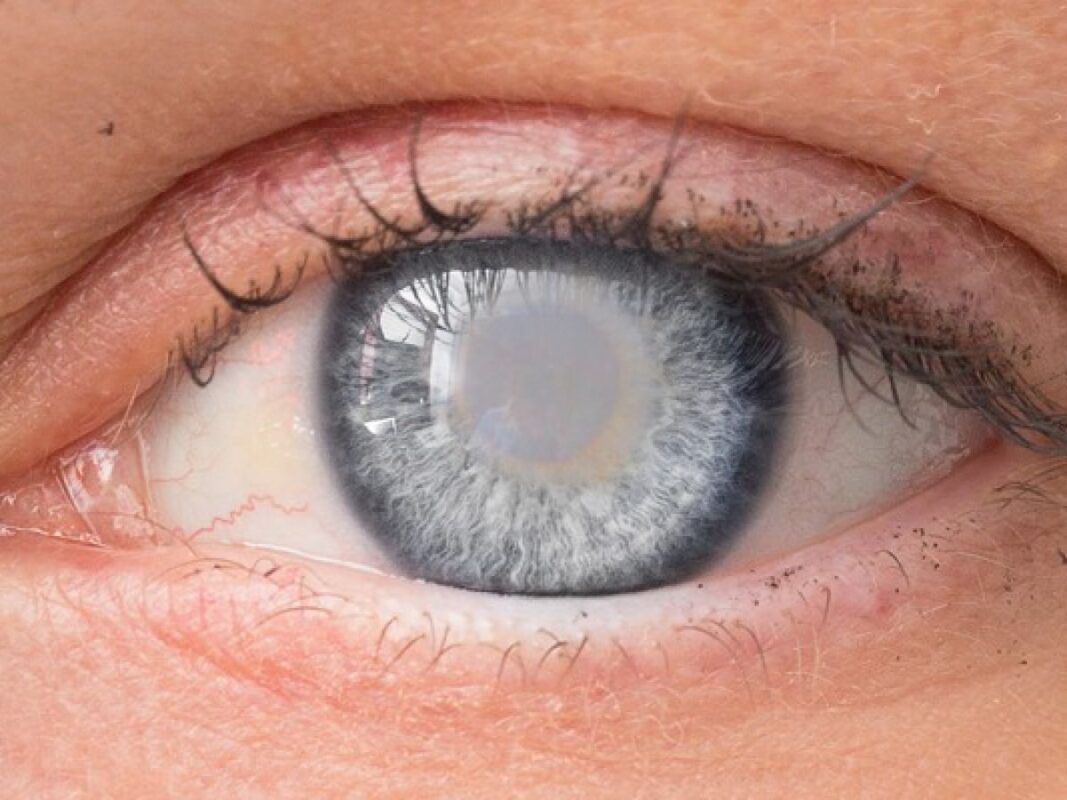Introduction
Cataracts, a condition where the natural lens of the eye becomes clouded, affect millions of people globally, particularly those over the age of 60. While cataract surgery remains the most effective and common treatment for restoring vision, not everyone is ready to undergo surgery immediately. ALTERNATING TREATMENT FOR CATARACT Whether it’s due to personal preferences, medical considerations, or financial constraints, many individuals seek alternative ways to manage and treat their cataracts.
In this detailed guide, we explore the various alternating treatments for cataracts, providing a deeper understanding of the options available, including dietary changes, supplements, innovative eye drops, lifestyle modifications, and emerging non-surgical treatments. With careful management, these alternatives may help slow the progression of cataracts and provide valuable relief for individuals who wish to delay or avoid surgery.
We’ll dive into the pros and cons of these treatments, scientific findings, and what you can do today to maintain optimal eye health. By the end of this guide, you’ll be well-equipped to make informed decisions about cataract care.
What Are Cataracts? or ALTERNATING TREATMENT FOR CATARACT
Before we dive into alternatives, it’s important to understand what cataracts are and how they affect your eyes. Cataracts occur when the clear lens inside your eye becomes cloudy, hindering your vision. This cloudiness can make your vision blurry, dim, or less colorful, which can impact daily activities like reading, driving, or recognizing faces.
There are several types of cataracts, including nuclear, cortical, and posterior subcapsular cataracts. These conditions develop over time, often related to aging, but they can also result from other factors such as injury, genetics, or certain health conditions like diabetes.
Symptoms of Cataracts:
- Blurry vision
- Sensitivity to light
- Difficulty seeing at night
- Faded or yellowed colors
- Double vision in one eye
While cataracts are most commonly linked to aging, they are treatable in the early stages with several non-surgical methods that we’ll cover in this article.
Traditional Cataract Surgery: The Gold Standard /ALTERNATING TREATMENT FOR CATARACT
Surgical intervention is the most effective way to treat cataracts. The most common procedure is phacoemulsification, a minimally invasive surgery that involves breaking the clouded lens into smaller pieces using ultrasonic waves and removing them before implanting an intraocular lens (IOL). The recovery time for this procedure is relatively short, with many patients noticing improved vision within days.
However, surgery isn’t suitable for everyone. Patients with certain health conditions, advanced age, or personal preferences may prefer to explore alternative treatments. If you are considering delaying surgery, keep reading to discover what alternatives may work for you.
Alternating Treatment Options for Cataracts
Although there is no proven non-surgical cure for cataracts, several treatments can help slow progression and improve eye health. Let’s explore these options:
1. Nutritional Therapy /ALTERNATING TREATMENT FOR CATARACT
A balanced diet plays a crucial role in maintaining eye health and slowing cataract progression. Nutritional therapy involves consuming foods rich in antioxidants, vitamins, and minerals to protect the eyes.
- Vitamin C & E – Found in citrus fruits, nuts, and leafy greens, these vitamins help reduce oxidative stress on the eyes.
- Lutein & Zeaxanthin – Found in spinach, kale, and corn, these carotenoids act as natural eye protectors.
- Omega-3 Fatty Acids – Present in fish like salmon and flaxseeds, these help reduce inflammation in the eyes.
- Zinc & Selenium – Found in whole grains and nuts, these minerals protect against lens damage.
2. Ayurvedic and Herbal Remedies / ALTERNATING TREATMENT FOR CATARACT
Traditional herbal medicine offers several natural remedies that claim to support eye health and delay cataract formation.
- Triphala – A herbal blend that detoxifies and strengthens eye tissues.
- Bilberry Extract – Rich in anthocyanins, which may improve night vision.
- Turmeric – Contains curcumin, an anti-inflammatory compound that may help prevent oxidative stress in the eyes.
3. Eye Drops for Cataract Management
N-acetylcarnosine (NAC) eye drops have shown some promise in early studies as a non-surgical treatment for cataracts. NAC is thought to break down protein buildup in the lens, potentially reversing or slowing down cataract formation.
While results are mixed and not yet conclusive, some users report seeing improvements in visual clarity, especially in the early stages of cataract development. Always consult with your healthcare provider before trying any new eye treatment.
4. Lifestyle Modifications for cataract management
You can also make some simple lifestyle changes to protect your eyes and reduce the risk of cataract development:
Limit UV Exposure:
Excessive exposure to UV rays accelerates cataract development. Wearing sunglasses with UV protection and hats with brims can reduce your exposure to harmful sunlight.
Quit Smoking:
Smoking is a major risk factor for cataracts. The chemicals in tobacco smoke can contribute to oxidative stress, leading to the clouding of the eye’s natural lens.
Manage Health Conditions:
Controlling conditions like diabetes can lower your risk of developing cataracts. High blood sugar levels can lead to various eye complications, including cataracts, so managing your diabetes is crucial.
Regular Eye Exams:
Routine eye exams can help detect cataracts in their early stages. By regularly visiting an eye care professional, you can track the progression of the condition and take necessary actions before it worsens.
5. Vision Therapy & Eye Exercises
While eye exercises cannot cure cataracts, they can enhance overall eye health and improve vision quality. Some effective practices include:
- Palming – Covering the eyes with the palms to reduce strain.
- Blinking Exercises – Helps in eye lubrication and reducing dryness.
- Focus Shifting – Alternating focus between near and far objects to maintain lens flexibility.
6. Homeopathic Remedies
Homeopathy is a debated but commonly sought alternative treatment for cataracts. Some remedies include:
- Calcarea Flourica – Claimed to help with lens opacity.
- Silicea – Believed to detoxify the eye tissues.
- Cineraria Maritima – Used in eye drops to cleanse the eyes.
7. Acupuncture & Traditional Chinese Medicine (TCM)
TCM suggests that energy imbalances in the body contribute to cataract formation. Acupuncture aims to restore balance and improve blood circulation to the eyes. Though research is limited, some patients report improved clarity of vision.
8. Blue Light Protection
Excessive exposure to blue light from screens can contribute to eye strain and oxidative stress. Using blue light-blocking glasses and reducing screen time can help maintain healthy vision.
9. Hydration and Eye Moisturization
Dry eyes can contribute to eye discomfort and strain, making cataract symptoms worse. Drinking plenty of water and using artificial tears can keep the eyes hydrated and improve comfort.
10. Mind-Body Connection: Meditation & Relaxation Techniques
Stress and poor mental health can negatively impact eye health. Practicing meditation and stress reduction techniques can help maintain better vision and overall well-being.
Herbal and Natural Remedies for Cataracts
In various traditional medicines, herbal treatments are sometimes recommended to maintain eye health. These include:
- Ginkgo Biloba: Known for improving circulation, ginkgo may help with eye health by increasing blood flow to the optic nerves and retina.
- Turmeric: Contains curcumin, a compound with potent anti-inflammatory and antioxidant properties that may support eye health.
- Bilberry: Known for improving night vision, bilberry extract has antioxidants that may help protect the eyes from oxidative stress.
Comparing Alternating Treatments vs. Surgery

| Treatment | Effectiveness | Best For |
|---|---|---|
| Surgery | Highly effective, permanent solution | Advanced cataracts |
| Nutritional Therapy | Helps slow progression | Early-stage cataracts |
| Herbal Remedies | Limited scientific evidence | Mild symptoms |
| Eye Drops | Experimental, promising results | Those seeking non-invasive methods |
| Lifestyle Changes | Preventive and supportive | All stages |
| Acupuncture | Limited research | Supportive care |
| Homeopathy | No strong scientific backing | Alternative preference |
Conclusion:
While cataract surgery remains the most effective solution for restoring vision, alternating treatments for cataracts can help manage symptoms and potentially delay the need for surgery. By incorporating lifestyle changes, dietary improvements, supplements, and regular eye exams, you can maintain healthy vision for longer.
Author Details:
Dr. Sushruth Appajigowda holds a prominent position as a Cornea, Cataract, Glaucoma, and LASIK Surgeon in Bangalore. He serves as the chief Cataract and Refractive surgeon at Vijaya Nethralaya Eye Hospital, Nagarbhavi Bangalore. Renowned as one of the finest LASIK surgeons nationwide, he brings with him over 12+ years of experience across multiple LASIK platforms, including ZEISS, ALCON, SCHWIND, AMO, and Bausch and Lomb. Having successfully conducted over 5000 LASIK procedures, Dr. Sushruth holds the title of a Certified Refractive Surgeon and a Fellow of the All India Collegium Of Ophthalmology. Furthermore, he stands as a distinguished speaker at various National and International Forums, using his expertise to guide you in selecting the most suitable procedure based on your health requirements.
Dr sushruth Appaji gowda
http://vijayanethralaya.com/link-in-bio/
FAQs
1. Can cataracts be reversed without surgery?
Currently, there is no definitive non-surgical method to reverse cataracts. However, early-stage cataracts can sometimes be managed with supplements, eye drops, and lifestyle changes to delay surgery.
2. What foods help prevent cataracts?
A diet rich in antioxidants, omega-3 fatty acids, lutein, and zeaxanthin can help protect against cataracts. Foods like leafy greens, citrus fruits, carrots, and fatty fish are all beneficial.
3. Do eye drops really work for cataracts?
Some studies have shown that NAC eye drops may help improve clarity and slow the progression of cataracts. However, they are most effective in the early stages and should be used with caution under a doctor’s supervision.
4. When should I consider cataract surgery?
Consider cataract surgery when cataracts severely impact daily tasks like driving, reading, or watching TV. Surgery is often recommended when cataracts lead to significant vision impairment.
5. Is it safe to use herbal remedies for cataracts?
Herbal remedies like ginkgo biloba and bilberry may offer benefits for eye health but should not replace professional medical treatment. Always consult your eye care provider before trying herbal treatments.











